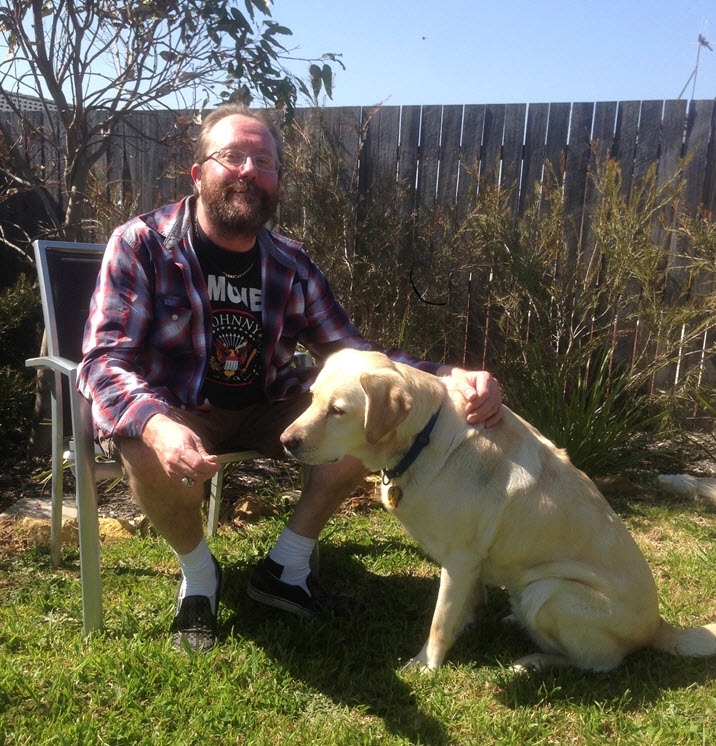Going It Alone: Blind and Low Vision Australians Take to the Polls Anonymously for the First Time Ever

THE FIRST time Justin Simpson was eligible to vote in a federal election was during the winter of 1987. Moving to Canberra from Newcastle to major in political science at university, Justin recalls the excitement and passion he felt for the political climate of the time. “It was a pretty dynamic and exciting time in Australian politics” he recalls, “Just being at university for the first year; the students in those days were very politically active. You had everything from the Socialist Alliance… groups right up to the Young Liberal parties and,” he jokes “the young liberals who had a lot of parties.”
That year, the Australian Labor Party, led by Prime Minister Bob Hawke, defeated the opposition Liberal Party of Australia led by John Howard. The Labor party’s victory was record-breaking for its time with a total of 86 out of 148 seats won in the House of Representatives. Justin had lined up at his local polling place and voted with no problems. Ten years on, whilst dealing with his Mother’s blindness, Justin was diagnosed with a genetic eyesight condition called Retinitis Pigmentosa. Justin remembers this point in his life as being very difficult, “I guess no age is a good age to get that sort of news,” he said “I know people who have been diagnosed in their twenties and in their teens and I probably reacted the same way that most younger males would have at first. [You] get angry…upset.”
After recovering from the initial grief, Justin wanted to know as much about his condition as possible. He joined local support groups and with assistance from Guide Dogs Australia, began using a cane. By the age of 29, Justin was deemed legally blind. Today, at 44 and with two per cent of his eyesight remaining, Justin is an active member of the vision-impaired community.
As Justin’s eyesight began to deteriorate, he recalls voting in elections becoming harder to manage. As someone who used to enjoy voting at polling stations and insisted on taking the time to vote below the line, the lack of independence and anonymity when voting since losing his eyesight became a serious issue. Having no way to keep his voting preference to himself, Justin became disillusioned with the voting methods available to him.
“I was struggling quite badly,” he recalls, “When I would go and vote with my wife, she would usually fill out the voting form for me. It wasn’t a confidential vote, my partner knew who I was voting for and for some people that might be an issue. The other thing was that I had to audibly tell my wife how I wanted to vote. And when you’re sitting in a room full of people voting, people could hear how I was voting.”
Justin said people who know him wouldn’t be surprised by how he votes, but in the past he had put a lot of thought into who he wanted to vote for and in what order. In the end, he said, voting above the line just became easier.
Over the years, many alternative voting methods have become available to blind and low vision voters, all of which according to Justin don’t properly address the issues of anonymity and independence for voters. This year, during the September Federal Election, the Australian Electoral Commission introduced anonymous telephone voting system for Australians who are blind or low vision. This method allows voters to place a secret ballot, from any location.
Not until this voting method was introduced has Justin been so satisfied with a voting system for the blind and low vision population. So happy with the new system, Justin volunteered to be the star of the Australian Electoral Commission’s instructional video for using telephone voting.
“Even before the day the election was announced, the commission was getting ready to send information out,” he said “They had obviously put in a lot of thought as to how to set up the telephone voting.”
Justin said the new voting method has helped him a great deal.
“It took about the same amount of time as it would have taken someone to turn up at a polling booth, the difference was, I didn’t have to leave my home. I just picked up the phone, [voted], hung up the phone and the process was over,” he said, “When I voted this morning, they offered to read out the candidates for me, but I explained that I already had it in large print in front of me…so we jumped straight into it. I didn’t time it, but I would have thought it was no more than five minutes, I was very happy with it”
By EMMA BOURKE


Be the first to comment!